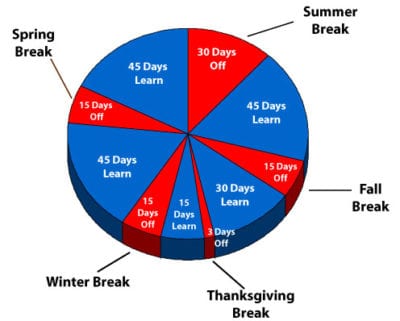These 3 Studies on Education Results May Shock You
Studies are a dime a dozen these days, but there are still plenty that force you to pay attention. Let’s talk about three education related ones that just might surprise you.
- Being uneducated is more dangerous than chain smoking. According to the Post’s review of a study published in PLOS ONE, “more than 145,000 deaths could have been prevented in 2010 if adults who did not finish high school had earned a GED or high school diploma – comparable to the mortality rates of smoking.”
That’s staggering considering smoking and education aren’t necessarily congruent.
For decades Americans have been warned about the horrors of smoking because of the adverse effects that it has on one’s health. While having an education has always been synonymous with success, not sure if anyone, or any study for that matter, has ever gone this far to connect poor health, or death related to poor health, to lacking a proper education.
The study, according to the Post, doesn’t directly correlate poor education with death. Rather it counts death as “an estimate of education’s impact on mortality, and do not indicate direct causality.”
While this study doesn’t directly state that failure to attain an education will result in death, it does portend that death is a consequence of one’s failure to gain an education. Make sense?
This type of information is multi-faceted because of how far it stretches. Personal responsibility plays a role; the government has an act in this play; the private sector and many other areas are also complicit.
How we move along with the information posted from this story will be interesting as well. Because, maybe more than anything, this shows just how stark the consequences are for our society if we fail to properly educate our children.
The results may be death.
- The Ivy Leagues may not be worth it. Saving a year’s worth of salary for one year of higher education at Harvard may yield great career results for some but that may not be true for all.
According to U.S. News and World Report, a recent Brookings Study shows that “other schools may either not cost as much and yield a similar salary and success of loan repayment, or they may cost about the same but generate higher earnings potential.”
Harvard is a small sample size and represents a limited portion of the zenith of college costs. But, in essence, the study shows that one may earn just as much for the duration of their career by attending a college with cheaper tuition.
That’s not a knock against Harvard as students, and their parents, are free to choose any school that matches with their educational goals.
This is an alternative that students have always taken. Take Ronald Nelson, a student who was accepted to all eight Ivy League schools.
Instead of choosing a prestigious Ivy League school, and the tuition that came along with it, Nelson went with the University of Alabama.
He said that Alabama “offered him a full scholarship and admittance into their selective honors program.” Nelson also wants to save for medical school and states that going to an Ivy League higher education institution would not allow him that luxury.
Still–students and parents have to make the decision that’s best for them. Rising costs of higher education will likely force more students to choose cheaper schools over ones with higher tuition rates.
- Closing the achievement gap would increase the GDP by $10 trillion by 2050.
Talk about boosting the economy.
One study after another has shown a wide educational achievement gap between the poorest and wealthiest children in the United States. This prompted researchers at the Washington Center for Equitable Growth, a group focused on narrowing inequality, to study and conclude that if America could improve education performance for the average student, everyone would benefit.
The U.S. ranks behind more than 33 advanced industrialized countries that make up the Organization for Economic Cooperation and Development when it comes to math and science scores. The study used scores from the 2012 Program for International Student Assessment, a test used around the world to measure and compare achievement.
America ranks behind countries such as Korea, Poland and Slovenia in the 24th spot.
Elimination of the achievement gap in the U.S. will boost the economy — but this requires raising the country’s average score to 1,080. The average combined score for the U.S. is 978, and the O.E.C.D average is 995.
If the U.S. could move up a few notches to number 19 – so the average American score would match the O.E.C.D. average – it would add 1.7 percent to the nation’s gross domestic product over the next 35 years, according to estimates by the Washington Center. This could lead to approximately $900 billion in higher government revenue.
If the U.S. scores matched Canada, number 7 of the O.E.C.D. scale, America’s gross domestic product would increase by 6.7 percent. After taking inflation into account, this is a cumulative increase of $10 trillion by 2050.
The achievement gap in America is a pressing issue, and it is certainly something we have to hone in on to eliminate. I hope to see our country’s O.E.C.D. ranking improve in the near future so we can narrow, and eventually close, the achievement gap and benefit from the boost in the economy too.
What do you think of these bizarre study results? Do any of these statistics surprise you?
Click here to read all our posts concerning the Achievement Gap.





